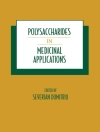Fatigue is quite a familiar sensation, one that everyone is likely to have experienced. Its molecular and neural mechanisms have not yet been elucidated, however, probably because of the complicated nature of its causes. To provide a broad forum for discussion, the International Conference on Fatigue Science was organized, the first being held in 2002 in Sandhamn, Sweden, and the second in 2005 in Karuizawa, Japan. Subsequently it was decided that the papers presented at the two conferences should be collected and incorporated in this pioneering work, Fatigue Science for Human Health. The book summarizes fatigue researchers’ achievements, explains the status of the research on fatigue, and presents perspectives on remedies for chronic fatigue and chronic fatigue syndrome. The result is an authoritative guide to recent progress in the molecular and neural mechanisms of fatigue and in the development of the ways to prevent and overcome fatigue and chronic fatigue. This book provides a valuable resource not only for physicians but for all who work in public health.
Inhoudsopgave
Dimensions and Assessment of Fatigue.- Fatigue: Epidemiology and Social/Industrial Aspects.- Development of a Method of Evaluation of Fatigue and Its Economic Impacts.- Utility of an Advanced Trail Making Test as a Neuropsychological Tool for an Objective Evaluation of Work Efficiency During Mental Fatigue.- The Brief Fatigue Syndrome Scale: Validation and Utilization in Fatigue Recovery Studies.- Chronic Fatigue Syndrome.- Development and Validation of a New Fatigue Scale for Fatigued Subjects With and Without Chronic Fatigue Syndrome.- Psychiatric Assessment and Treatment for Chronic Fatigue Syndrome in Japan.- Some Patients with Chronic Fatigue Syndrome Have Brain Dysfunction.- Neurobiology of Chronic Fatigue Syndrome.- Chronic Fatigue Syndrome and Herpesvirus Infection.- Chronic Fatigue Syndrome in Childhood and Adolescence.- Physical or Mental Fatigue and Immunodepression.- Exercise Fatigue.- Mechanism of Fatigue Studied in a Newly Developed Animal Model of Combined (Mental and Physical) Fatigue.- Lactate Is Not a Cause of Fatigue.- Brain Mechanisms of Poly I:C-Induced Fatigue in Rats.












